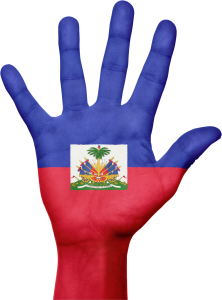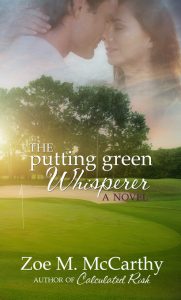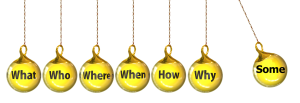You don’t need to use the actual place, but you could use the memories:
• something you saw (good or bad)
• a specific feeling you had (exhilaration, fear, sadness)
• a general feeling you had (ominous, out of place, homey)
• a person you met (friend, enemy, boyfriend)
• a particular setting within the place (a cabin, school, ship)
• an event (reunion, festival, lost)
List the places then let memories from each location flow. Write them down. Does one fit your work in progress in some way? Would it add flavor to the plot or a character? Humor to your story?
I’ve lived in sixteen places. I’ll pick four as examples of what I’ve learned from them.
Significant Memories from Places I’ve Lived
Baltimore, MD – As a preteen, I saw from the family car a wailing, bloody-faced man running alongside a big car, his hands clutching the window rim. The car sped up and the old man fell to the pavement. I felt horror. I was also frustrated that I’d never know the story behind the event. Were the men inside stealing his car? Were they getting rid of him by abandoning him? This memory warned of the frustration readers experience when the author doesn’t tie up loose ends.
Petionville, Haiti – At ages seven to ten, I lived on a mountainside overlooking Port-au-Prince in a gray stucco house with a red metal roof.
The tropical island was wonderful – fiery orange flamboyant trees, warm temperatures, big lizards, our parrots and donkey, aqua water, hibiscus flowers, international school, the merengue dance.
Haiti was mysterious – paths through the forests to nearby villages; frenzied Mardi Gras celebrators dressed in costumes dancing in our yard; a dead chicken hanging from a tree in the middle of the woods near an extinguished fire; our cook screaming because a Voodoo doll was pinned to her outside door; rats bumping and banging inside our metal roof during a deluge.
 Haiti was dangerous – revolution, corrupt election, rise of Papa Doc, Papa Doc’s violent Tonton Macoute thugs. A Haitian looking for the Spanish embassy drove up our road and stopped at our house. Blood covered the seat of his pants. People were dead and wounded in the back of the police van he’d hijacked during an attack on his family.
Haiti was dangerous – revolution, corrupt election, rise of Papa Doc, Papa Doc’s violent Tonton Macoute thugs. A Haitian looking for the Spanish embassy drove up our road and stopped at our house. Blood covered the seat of his pants. People were dead and wounded in the back of the police van he’d hijacked during an attack on his family.
I’m drawn to tell a fictional story about a little girl who saves an Arab boy whose Father’s jewelry business comes under a Tonton Macoute raid. The time hasn’t been right yet.
Norfolk, VA – During a rare snow, my father built me an igloo. After I’d hounded him, I was afraid to go inside when frostbite threatened my fingers and toes. I will never forget the pain from my thawing appendages. I used this experience in Gift of the Magpie.
That same winter, my sister, two friends, and I fell through the ice on a lake. Our wet heavy coats worked against treading water. When we tried to get out, the ice caved. I was so exhausted, I decided to give up and drifted under. I learned about the will to live.
Guantanamo Bay, Cuba – As a high school teen, I lived on the five-mile-square Naval base. During the Cuban Missile Crisis, my mother, brother, and I were evacuated on the USS Upshur with little in our suitcase. We returned three months later. My three days aboard ship with friends trying to avoid a sergeant and cleaning toilets was an adventure.
The next year, after threats from Castro, the base admiral sealed the pipes from which we received water. We went three days without water until a water tanker arrived. I learned to appreciate water.
Use the events and feelings in places you’ve lived to enrich your stories. Click to tweet.
What place taught you something that you could use in a story?
 Suddenly unemployed, Allie Masterson returns home to Cary, North Carolina where she caddies for her father on the PGA Seniors Tour. There, she encounters a man who possesses an alluring gift of reading the contours of the green. Fascinated with his uncanny ability, Allie is excited to meet the Green Whisperer—until she discovers that the easygoing caddy is actually Shoo Leonard, the boy who teased her relentlessly when they were kids. Despite Allie’s reservations, when Shoo is faced with having to overcome a hand injury, she agrees to use her sport science degree to become his trainer…and then she falls for him.
Suddenly unemployed, Allie Masterson returns home to Cary, North Carolina where she caddies for her father on the PGA Seniors Tour. There, she encounters a man who possesses an alluring gift of reading the contours of the green. Fascinated with his uncanny ability, Allie is excited to meet the Green Whisperer—until she discovers that the easygoing caddy is actually Shoo Leonard, the boy who teased her relentlessly when they were kids. Despite Allie’s reservations, when Shoo is faced with having to overcome a hand injury, she agrees to use her sport science degree to become his trainer…and then she falls for him.
Shoo Leonard is grateful to Allie for her singular determination to get him ready for the PGA tour, but he isn’t ready for anything more. Still raw from a broken engagement and focused on his career, he’s content to be her fist-bumping buddy…but then he falls for her.
What seems like a happily-ever-after on the horizon takes a turn when Allie decides she’s become a distraction to Shoo’s career. Is it time for her to step away or can The Putting Green Whisperer find the right words to make her stay?












 RSS - Posts
RSS - Posts